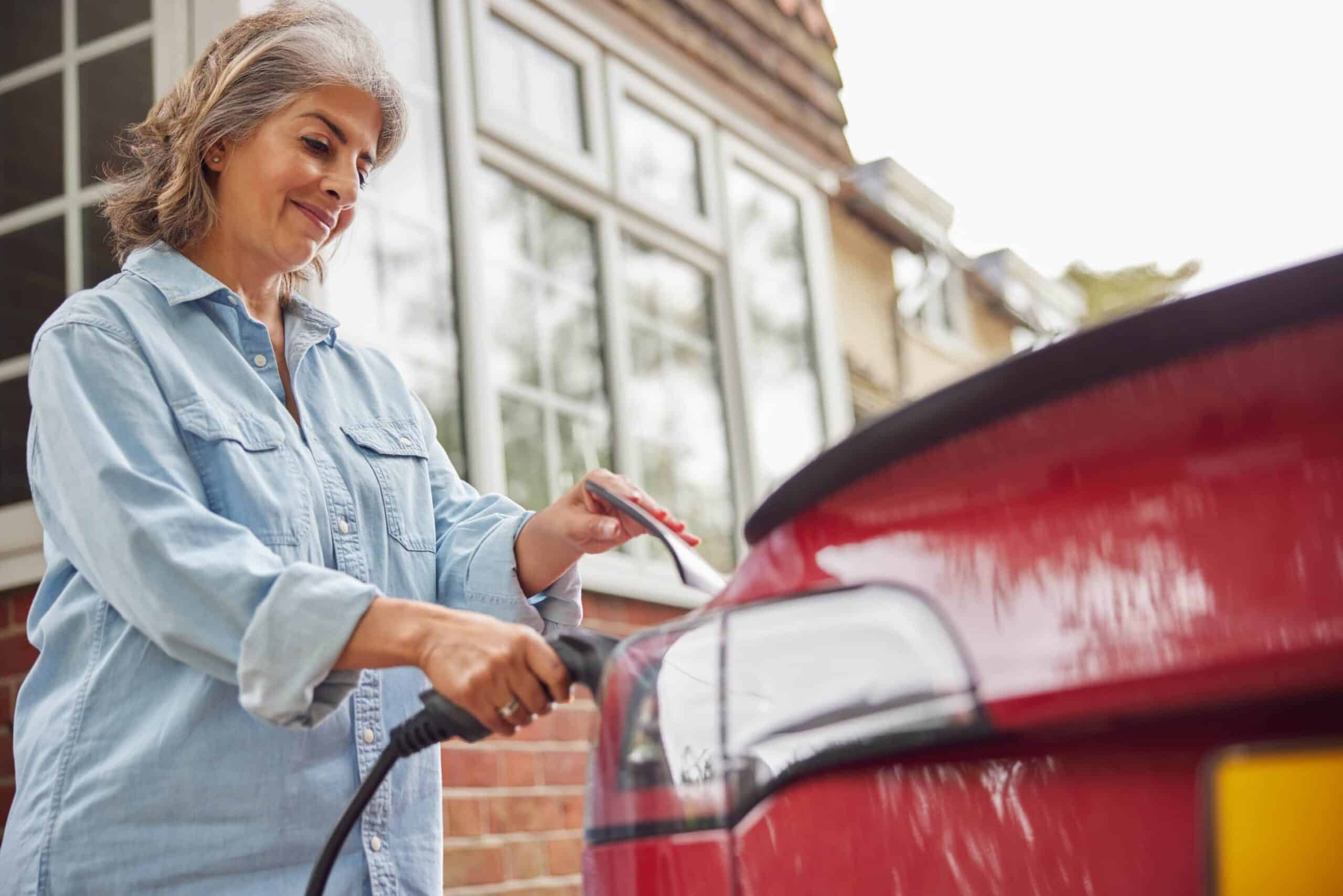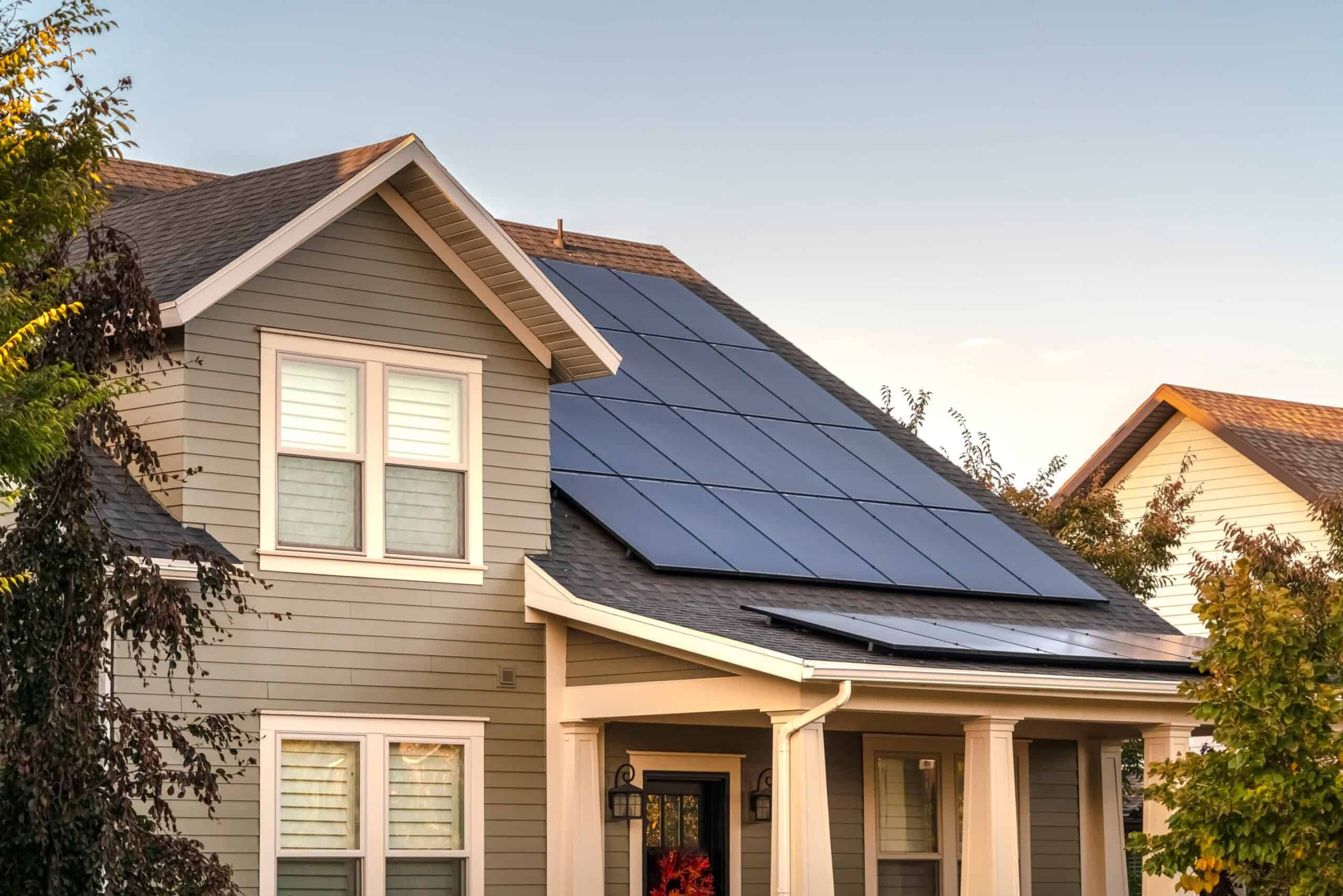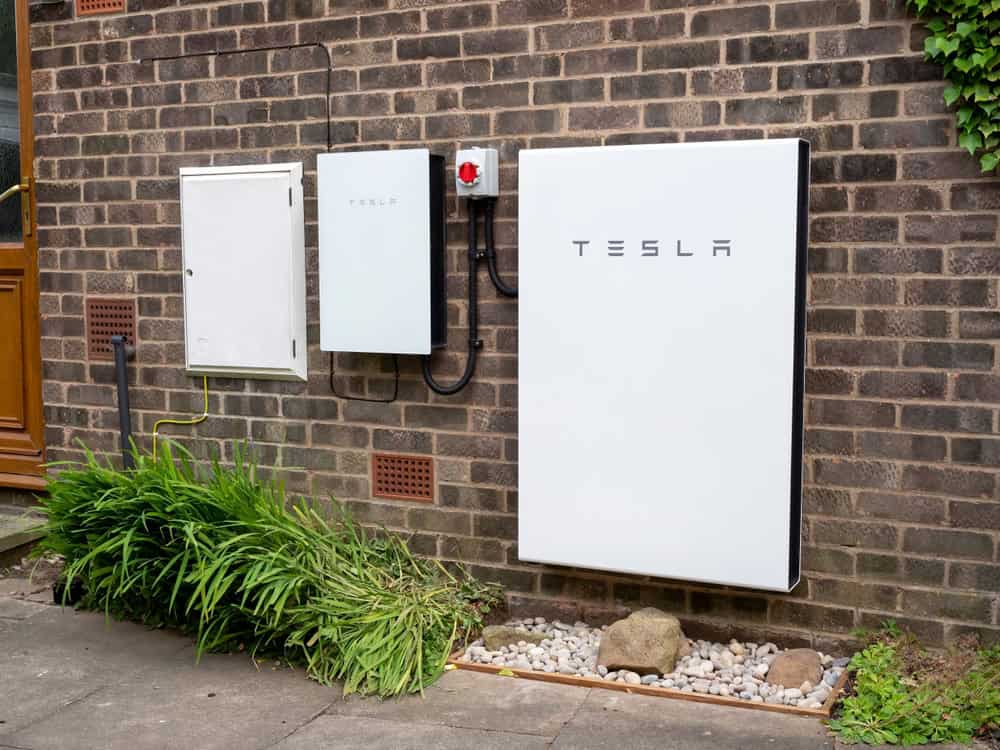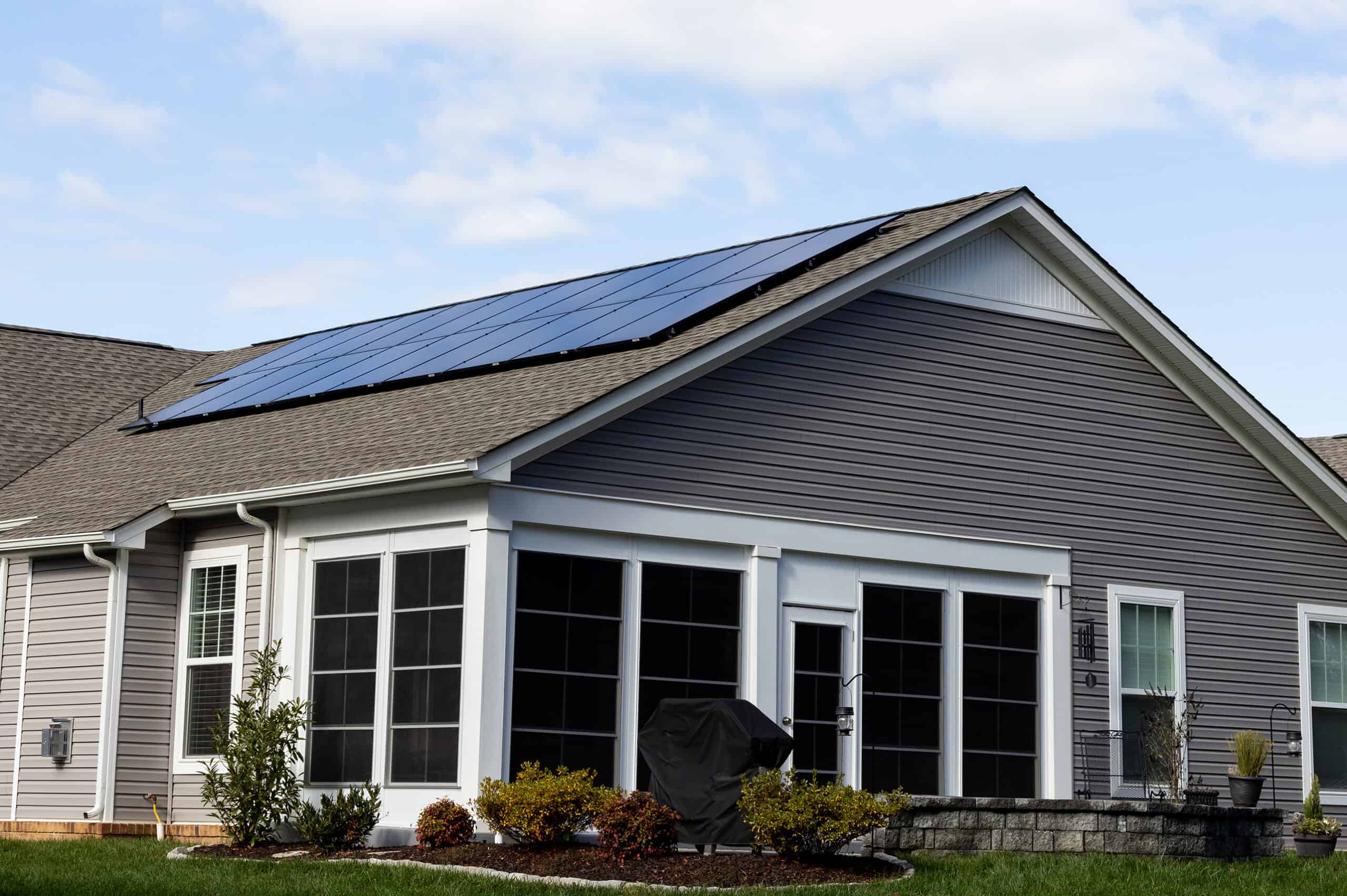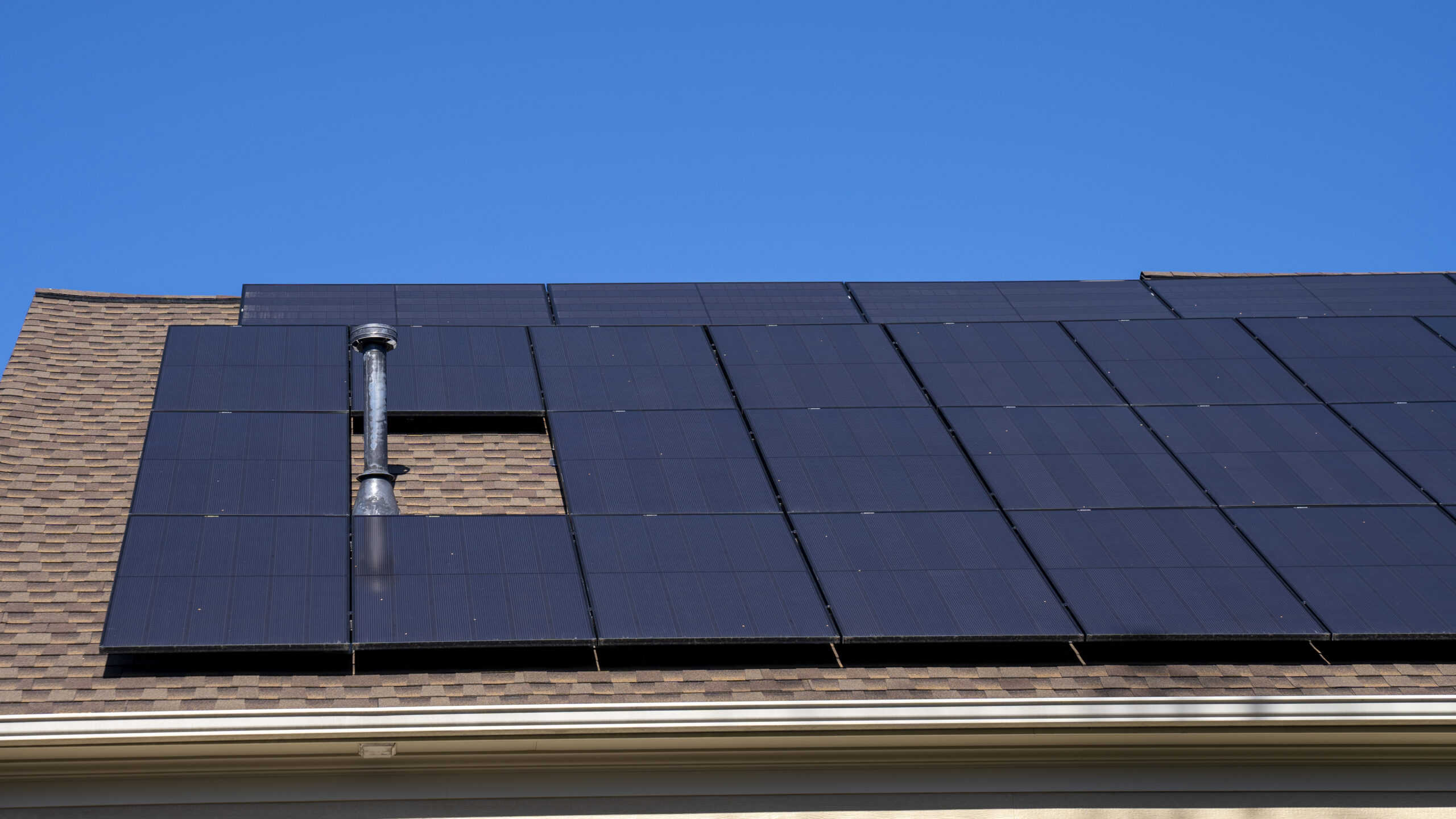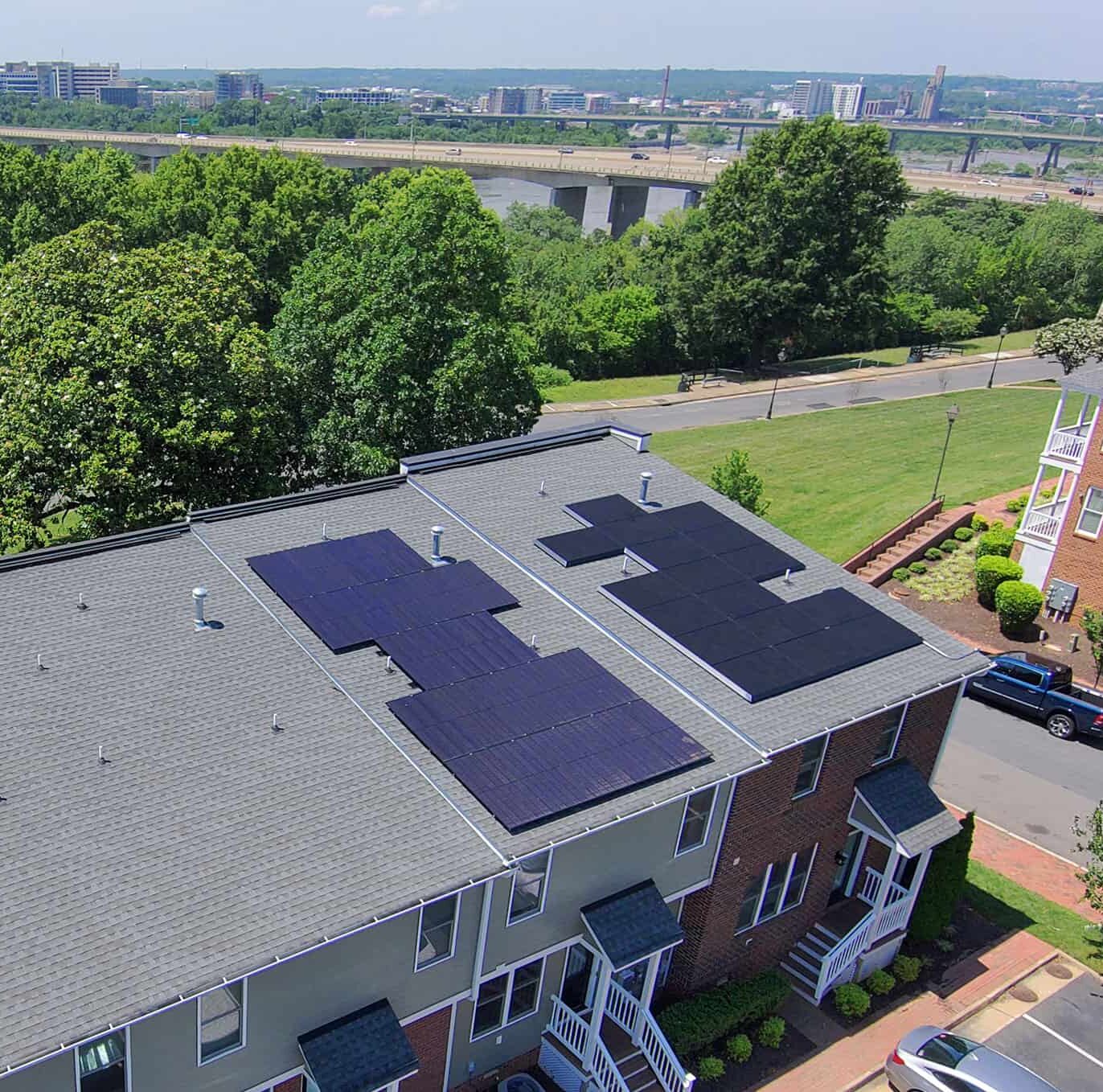Top 10 Frequently Asked Questions from Virginia Homeowners
Considering a Rooftop Solar System
Have questions about your home solar options? Dominion Energy Solutions is here to help! We offer a no-hassle and no-hard-sell approach to finding a solar solution that fits your needs. Backed by our parent company, Dominion Energy, we aim to pair you with a solar system that is kind both to your wallet and the environment.
1. What are Virginia’s solar energy policies?
Virginia’s first solar energy policy called Residential Property Tax Exemption for Solar started back in 1977. This specific policy allowed property owners to not pay an increased property tax value if they installed a solar energy system, as long as their city legally approved the policy.
Since 2018, Virginia has installed more than 730 megawatts (MW) of solar energy panels, making it the 17th state with the most installed solar according to the SEIA’s national rankings. This solar energy boom is mainly due to the increasing development growth that Virginia experienced over the past few years. Both the decreasing costs of solar energy installations and the advantageous policies and rebates put in place by the state have improved development.
The Virginia Clean Economy Act of 2020 now aims to deliver the state’s utility-delivered power to 100% renewable energy by 2045, and it directs the construction of 16,100 MW of solar power and onshore wind by 2035.
The most important financial incentive to come from the state of Virginia since occurred in 2012. That year, Dominion Energy decided to offer solar performance payments to any customers that signed up for solar. This program, named Dominion Solar Purchase Program, provided premium payments to solar customers and made the switch much easier and more appealing.
2. Does going solar in Virginia make sense?
Due to recent solar incentives, switching to solar energy has become a more sensible investment in the state of Virginia.
Throughout Virginia, homeowners and business owners are working hard to safeguard the natural environment by signing up to switch to alternative energy resources using solar power. Switching to solar has become increasingly popular in the Commonwealth of Virginia thanks to advantageous federal and state financial incentives such as the availability of net metering, solar rebates, leasing options, and local property tax exemptions depending on the county.
3. How popular is solar in Virginia?
Solar capacity in Virginia has skyrocketed in recent years. According to the SEIA, Virginia ranked 4th out of all states in terms of total solar capacity growth in 2020 (up from 19th in 2019), and residents across the state are installing solar power on their roofs at a record pace in 2021.
4. What is the cost of installing solar systems in Virginia?
From Virginia data available, the average cost of a solar system varies from $12,282 to $16,618. This can be paid for upfront, by loan or with a lease. Regardless of payment option, residential solar systems can save the average homeowner hundreds of dollars a year and thousands over the lifetime of a system.
Dominion Energy Solutions offers very competitive loan and lease rates that will result in payments often less than what many pay monthly for their electricity.
5. How many years does it take to recoup my solar investment?
A solar payback period is the number of years that the owner of a solar energy system will have to wait to recoup their initial investment. In most southern and east coast states, including Virginia, the average solar panel payback period is roughly 13 years. But it is important to note that most people financing and leasing their solar systems can obtain a rate that is essentially the same – if not lower – than their current electric bill. This means that you will be paying the loan off for 13 years with the same money that would have otherwise gone to your electric company. After the loan is paid off, the electricity you produce for the remaining life of your system comes with no expense.
6. What are the best solar panels for Virginians?
Being able to custom-design solar panels systems specific to a home and their energy usage is critical for securing a cost effective system that offsets energy and saves your home money. You do not want your system to over produce or, even worse, under produce. That is why Dominion Energy Solutions offers customized solar energy systems to fit the unique needs of your home.
Regardless of a system’s size, there is still a matter of what type of panel you get installed on your home. The solar industry has designed a tiering classification system for solar panel manufacturers that consists of a Tiers 1-3.
Generally speaking, Tier 1 solar module manufacturers are defined as those that:
- Have been producing solar panels for more than five years
- Are manufactured by companies that are publicly listed or have a strong and stable balance sheet
- Have fully-automated production capabilities and a high degree of vertical integration to avoid product defect
- Offer excellent 25-year warranties and are high efficiency
Manufacturers of solar panels that meet these Tier 1 criteria include Panasonic, LG, SunPower, SolarWorld, Trina, Jinko, and Canadian Solar.
Tier 2 and Tier 3 manufacturers do not meet one or more of the above criteria.
Dominion Energy Solutions only offers Tier 1 solar panels to its customers, but Tier is only one of several factors a new solar energy customer should consider when investing in any solar energy systems. Consulting with our team of solar experts will ensure your system is sized correctly the first time and meet future energy usage.
7. How much solar energy can I generate from my panels in Virginia?
Both the type of solar panels used and amount of sunlight the panels receive dictates the energy output of your system. The time of year, shading from trees, and dust and grime can also affect how many kilowatts your system produces. Summer for example produces more energy throughout the day compared to winter, when there is less sunlight.
Obviously, there are more factors that can control how much solar power you can generate with your system: panel angle and orientation as well as shading can be used to add up to your total solar production estimate, which is a rough prediction on how much renewable electricity your solar panel system can generate over the years.
A professional assessment can give customers a good idea how much solar energy the system can generate.
8. What solar incentive programs are available in the state of Virginia?
Federal solar incentives such as The Investment Tax Credit (ITC), have been instrumental in expanding solar energy installations across the United States. This solar energy program entitles you to a 30% tax credit, which means that you can write off 30% of the solar system’s cost from your taxes. As an example, if you installed a solar panel system that cost $15,000, the customer can be eligible for a tax deduction of $4,500. To be eligible for the tax credit, you must have your system installed by December 31, 2025.
Apart from the ITC, the state of VA is offering other advantageous programs for those wishing to switch to solar energy, depending on your location and electricity provider. This includes net metering offered by most state utilities like Dominion Energy.
To find out more about the most convenient solar incentives programs available in the Virginia area, check out Dominion Energy Solutions’ overview on this topic.
9. How does net metering work in Virginia?
The state of Virginia set up net-metering standards in 2005 applicable for residential solar energy installations up to 20 kilowatts (kW). This net metering program has allowed residential owners to send back extra energy created by their system back to the electric grid in exchange for a reduction on their energy bill, making them crucial for the increase in solar energy installations.
It was finally agreed in Virginia that the surplus electricity sold back to the grid was to be credited at the full retail rate. This has become an excellent economic incentive compared to other US states who only credit excess solar energy generated at the wholesale price.
Furthermore, in 2017, Virginia made solar energy more accessible by creating a community solar energy pilot program through our parent company, Dominion Energy, and other utility company in the state. And in 2018, a virtual net metering bill was introduced allowing residents who are unable to install solar panels on their properties or who are renting to access solar energy.
10. Where can I learn more about solar?
There are a number of resources we send our customers to in order to get the latest information on solar.
- Virginia Solar Incentives, Rebates & Tax Credits
- VA Department of Mines, Minerals and Energy
- Solar Power Virgini
- Energy Regulation in VA
- Virginia Renewable Electricity Profile (EIA)
- VA State Solar Policy (SEIA)
In addition to these resources, we suggest to our customers that they research their solar options by reading through the content on this website and scheduling a call with our Dominion Energy Solutions team. We are happy to answer any and all questions and assure you there will be no hard sell. We just want to make sure you’re armed with everything you need to make the right choice for you home.

